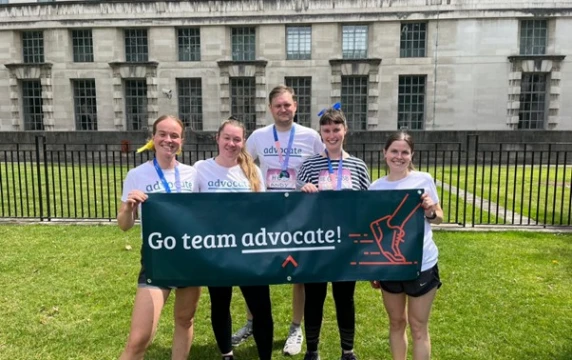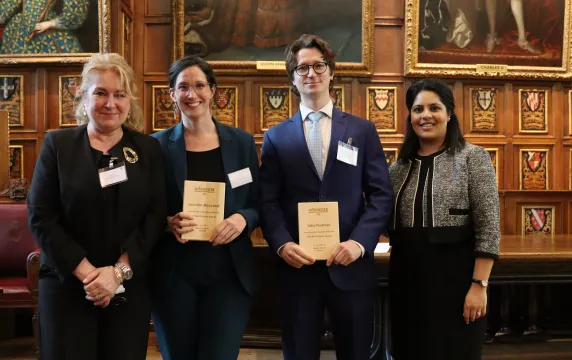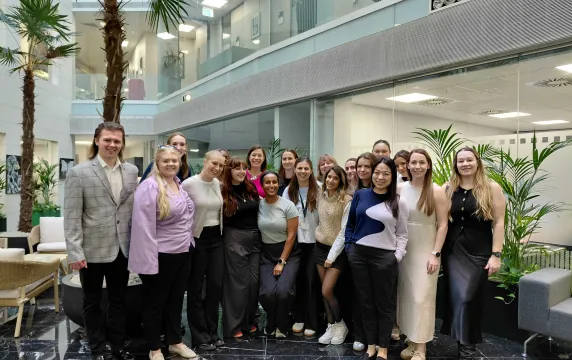After being stabbed by the police at the age of 14, Isaak and his family ran away from their home in Eritrea, in fear of persecution and death. Leaving his mother and sister behind in Sudan, Isaak travelled across Europe alone and spent a year living in the infamous Calais ‘jungle’ camp before arriving in the UK in the back of a lorry.
The legal hurdles
Isaak was granted legal aid and claimed asylum as an unaccompanied minor, but his application was refused on the basis that the Home Office believed him to be from Ethiopia, not Eritrea. They relied on the fact that he spoke Amharic, the Ethiopian language, rather than Tigrinya, which is spoken in Eritrea and that he had little knowledge of Eritrean geography. The solicitors that initially helped him, lodged an appeal on his behalf but then shut down the case and refused to represent him further on the basis that nationality disputes are difficult to fight.
His keyworker turned to the British Red Cross for help and caseworker Yeri took over the search for legal assistance. She said:
“It was the first time I’d had a case where the solicitors had created such a barrier to anyone else taking the case. Lots of solicitors didn’t want to touch it because they would need really strong evidence to re-open the case and they don’t like handling nationality disputes. So we were in the unusual situation of having an appeal date but no representation.”
Finding the right help
Yeri managed to have Isaak’s case adjourned while she desperately searched for help. Three weeks before the appeal, she went to Support Through Court to see if she could at least get him a volunteer to sit in court with him and help him on the day. Support Through Court recommended Advocate and she delivered the application form that same day.
Fortunately for Isaak, Advocate volunteer barrister Emma Daykin from One Pump Court stepped forward and agreed to take his case. An expert in asylum, immigration and human rights, Yeri said:
“This case feels particularly special because it was such chance that Emma had the time and expertise. We had never worked with Advocate before and this case felt hopeless. I kept thinking it wasn’t fair for him to appear alone with no understanding of the process. We just wanted him to have a fair shot.”
The Covid-19 lockdown made meetings incredibly difficult, but Emma slowly got to know Isaak and gather the facts surrounding his traumatic story. She argued at his appeal that his fluency in Amharic was explained by his upbringing in a town full of Eritrean deportees, whose first language was not Tigrinya. His lack of geographical knowledge was due to fact that he left school at a very young age and worked selling tea on his mother’s market stall instead.
The day of the hearing
Describing the day, Yeri said:
“The best moment was when we got out of court from the appeal and Isaak felt very confident. He had cried after cross-examination because it had been so tough. Emma’s final submissions were incredible but I was mindful that these cases come down to credibility and can go one way or the other.”
Barrister Emma said:
“I'm so relieved that Isaak had Advocate to turn to because his life was literally on the line. It was a pleasure to be able to provide this young man with a voice and help him navigate the Tribunal system. At the conclusion of the hearing, Isaak had clearly understood everything I had said on his behalf and I could physically see the stress leave his body. Although he didn't have the result yet, he immediately relaxed in the knowledge that all of his points had been properly conveyed to the Judge.
His case was complex and raised issues that fell within my specialist knowledge and it is important to me that vulnerable people without means not only have access to justice but also the same high standard of representation as someone who can afford to pay.”
Isaak looks to the future
Two years after arriving alone in the UK, the appeal judge accepted that Isaak was Eritrean, had left there illegally and was entitled to asylum. Isaak now studies English and maths at college and is hoping to trace his family to find out what happened to his mother and sister. He said of Emma:
“I cannot express how wonderful she is. I only met Emma twice – once at the appeal hearing itself – and she understood my case perfectly. She really understands people’s problems and is very empathetic. I have no words to express how much she has helped me. I am extremely grateful.”







